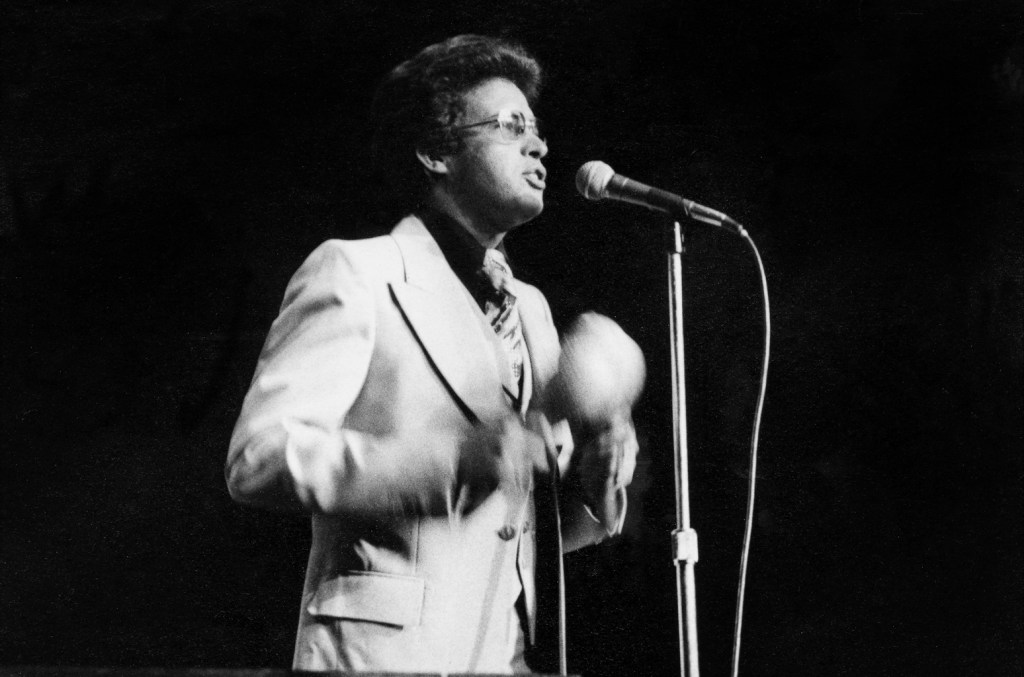Experience the Timeless Magic of Latin Music as Songs and Albums Enter the National Recording Registry!
Latin music has profoundly shaped the American musical landscape. From the lively rhythms of Celia Cruz and Johnny Pacheco’s joint album Celia & Johnny to Daddy Yankee’s reggaetón breakthrough hit “Gasolina,” these songs represent the diverse and vibrant contributions of Latin artists to the American songbook.
Each year, the Library of Congress selects 25 recordings to the registry to preserve sound recordings that are “culturally, historically or aesthetically significant” to American life.
Last week, the Library of Congress’ National Recording Registry immortalized two more Latin songs: Juan Gabriel’s heartfelt ballad “Amor Eterno” and Héctor Lavoe’s salsa anthem “El Cantante.” Now enshrined in the registry, these timeless songs testify the enduring legacy of Latin music. “For musicians of any genre, having a song inducted into the National Recording Registry is a prestigious honor,” Congressman Joaquin Castro tells Billboard Español, who’s a major driving force for Latin music on the list. “I’m very proud that the Library of Congress ultimately honored two artists from my list [this year].”
Created under the National Recording Preservation Act of 2000, the Registry has included more than twenty works of Latin music and/or musicians of Latin descent to date. The first Latin music release to be added to the Registry was Dance Mania (1958) by Tito Puente in 2002. Subsequent inductees include Santana’s electrifying Abraxas (1970), which redefined Mexican-American rock; Buena Vista Social Club’s eponymous album (1997), bringing Cuban son to American audiences; Ritchie Valens’ “La Bamba” (1957), which reinvented a son jarocho song from Veracruz, Mexico by injecting American rock into it.
“In addition to advocating for more Latino inclusion in American media — which, more than any other industry, shapes how Americans see the world around us — I would also push for more recognition of the ways that Latinos have contributed to American excellence,” Castro explains.
“Today, Latinos make up 20 percent of the United States, but less than five percent of the titles on the Registry come from Latino artists,” adds the Mexican American politician from San Antonio. “As a result, the Registry became a natural place to direct my work – in part because the Library of Congress has tried in recent years to do a better job of honoring how Latinos and other racial minorities have shaped America’s growth.”
Below, we present the Latin music entries, arranged from the most recent inductions to the earliest.
Héctor Lavoe, “El Cantante”
Year of Induction: 2024
Year of Release: 1978
“‘El Cantante’ is an excellent example of the many songs that became emblematic at the height of the 1970s New York City salsa era,” the Library of Congress stated in an announcement.
Listen to the album here.
Juan Gabriel, “Amor Eterno”
Year of Induction: 2024
Year of Release: 1990
“I believe that future generations – that’s what he always wanted – will see his music and make it relatable to their lives as well. He would always say that ‘as long as the people keep singing my music, Juan Gabriel will never die,’ and it’s nice to see that happening here,” said Juan Gabriel’s son, Ivan Gabriel Aguilera. “It’s something wonderful for us. It’s such a great honor. It’s a great honor for my dad. I think that for his legacy it is something great [that] he’s going to be immortalized there in the Library of Congress.”
Listen to the album here.
Daddy Yankee, “Gasolina”
Year of Induction: 2023
Year of Release: 2004
Last year, “Gasolina” became the first reggaetón song to be inducted into the National Recording Registry.
Listen to the song here.
Cuarteto Coculense, The Very First Mariachi Recordings
Year of Induction: 2023
Year of Release: 1907-1909 (reissued 1998)
“One might wonder why a mariachi album, much less one originally recorded on wax cylinders in Mexico, would be included in the Library of Congress, but mariachi today is an integral part of American culture,” wrote professor Jeff Nevin.
Listen to the album here.







